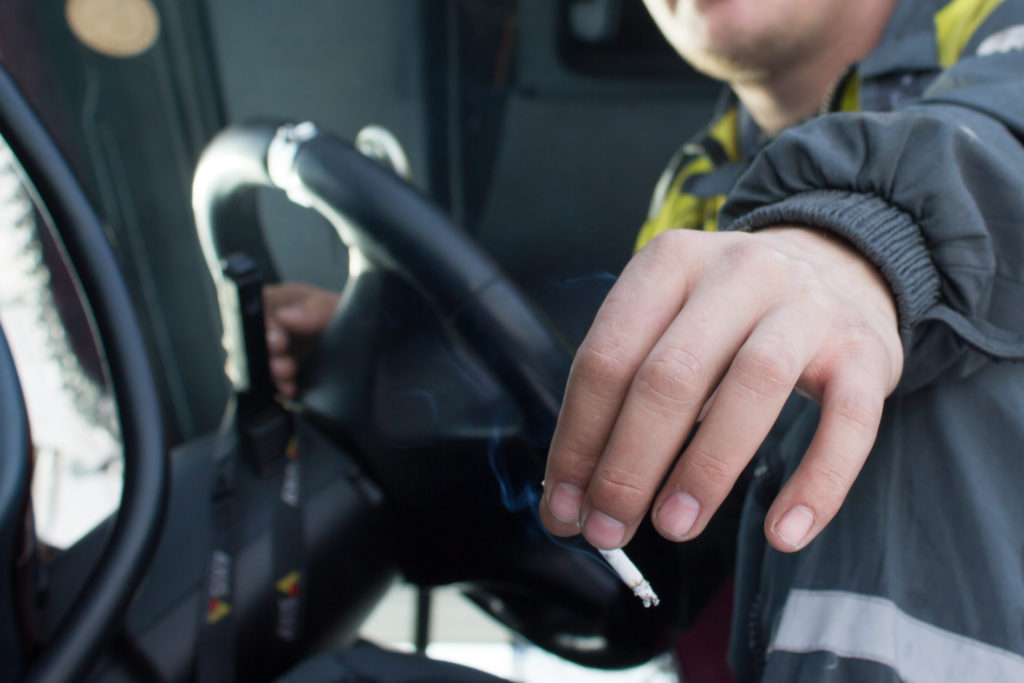
Starting February 1st, U-Haul will no longer bring any nicotine users onboard.
In a recent announcement, the moving and truck rental company said it will now refuse to hire nicotine users in the 21 states which legally allow that decision–citing the desire for a “healthier workforce” as the reason.
This nicotine-free policy is possible in states without protections for the rights of smokers. However, it won’t apply to employees hired prior to February.
In a news release, company chief of staff Jessica Lopez said U-Haul will be working toward fostering an overall new “culture of wellness.”
The states in which the new policy will take affect include: Alabama, Alaska, Arizona, Arkansas, Delaware, Florida, Georgia, Hawaii, Idaho, Iowa, Kansas, Maryland, Massachusetts, Michigan, Nebraska, Pennsylvania, Texas, Utah, Vermont, Virginia, and Washington.
Prospective applicants in these states, which allow companies to choose not to hire job seekers using nicotine, should expect to find information on the anti-nicotine policy on their applications and to be questioned about their use of nicotine, U-Haul said. In states where testing is allowed, applicants may also have to undergo nicotine screening to be hirable.
U-Haul said it is striving to encourage wellness among its employees, and is working on a new fitness center in one of its Arizona locations, as well as multiple wellness and fitness programs.
The company currently employs over 30,000 people throughout North America and will work toward helping its current nicotine-using workers with cessation assistance.
“In our continued efforts to enhance our wellness program and decrease health care costs, we have become more aware of the medical side effects of using nicotine and tobacco products,” said Lopez.
These products include vaping tools and e-cigarettes, in addition to traditional cigarettes, according to the policy. U-Haul company officials have also explained their inspiration from hospitals and other health-conscious businesses which are implementing nicotine-free hiring methods.
Alaska Airlines has had a no-nicotine policy in place since 1985 in order to help keep health care costs and health consequences lower.
U-Haul’s decision to follow suit comes soon after President Trump signed legislation raising the minimum age of those purchasing any tobacco or vaping products from 18 to 21.
However, while public health experts may be pushing for smoke-free lifestyles, they are torn on whether or not companies and employees will benefit from the new policy.
Michael Siegel, professor of community health services at the Boston University School of Public Health, said that U-Haul’s policy is misguided in terms of its approach to furthering wellness, as those who are addicted to nicotine may have trouble quitting and opt for nicotine-infused gum, patches, or lozenges. Nicotine replacement treatment is able to appear in nicotine-screening urine tests.
“Essentially, what that means is if you quit smoking and start using nicotine patches or nicotine gum or electronic cigarettes, you are not eligible to work for that company if you’re using nicotine replacement products,” he explained.
According to a survey by the Food and Drug Administration, around 7 percent of smokers can successfully quit smoking for at least six months to a year; however, the Mayo Clinic found that over 30 percent of smokers can quit fully with the help of a nicotine-replacement product.
“There are a lot of vices out there, and [these workers] have just chosen this one thing,” said Siegel. “[Banning it] is just kind of inappropriate.”
Lynn Kozlowski, University of Buffalo School of Public Health and Health Professions professor, wants U-Haul to note that some nicotine-infused products are more harmful than others–like cigarettes and cigars as opposed to smokeless tobacco.
Products like smokeless tobacco and nicotine products for vaping are less likely to contaminate public workplaces or affect work performance. Banning all nicotine products together causes U-Haul to look as if its policy is based on morals rather than health, Kozlowski argued.
“I bet if U-Haul were to look at [its] corporate office, [it has] a coffeepot going most of the time and people addicted to caffeine,” he said.
This begs the question, where does a trucking company–or any employer–draw the line between raising reasonable health standards and being intrusive?
According to Kevin Schroth, associate professor at the Rutgers School of Public Health, the company’s new rule could be deemed unfair to those who have fallen victim to the tobacco industry’s strong advertising techniques–which are aimed heavily at young people.
As of now, said Kozlowski, U-Haul’s policy announcement does not have nearly enough clarity for full scrutiny.